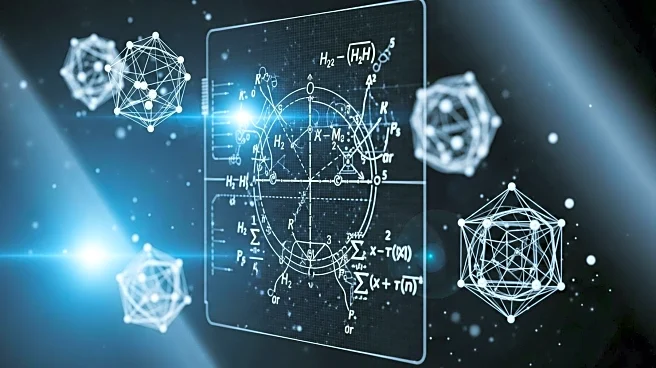What's Happening?
A study by Robert G. Endres from Imperial College London presents mathematical challenges to the spontaneous emergence of life from nonliving matter. Using information theory and algorithmic complexity, the research suggests that the formation of the first living cell, or protocell, under natural conditions is highly improbable. The study highlights barriers to life’s emergence, questioning the sufficiency of chance and natural chemical reactions in explaining the origin of life. It also considers alternative theories, such as directed panspermia, while emphasizing the need for new physical principles.
Why It's Important?
This study adds a mathematical perspective to the debate on life’s origins, challenging existing theories and prompting further scientific inquiry. Understanding the mechanisms behind life’s emergence is crucial for fields like biology, physics, and astrobiology. The research could influence future studies and theories, potentially leading to breakthroughs in our understanding of life's beginnings and the conditions necessary for its development.
What's Next?
The study encourages exploration of new physical principles or mechanisms that could explain life’s emergence. Researchers may investigate alternative theories, such as panspermia, while maintaining scientific rigor. The findings could inspire interdisciplinary collaboration, combining mathematics, biology, and physics to address one of science’s greatest mysteries.










